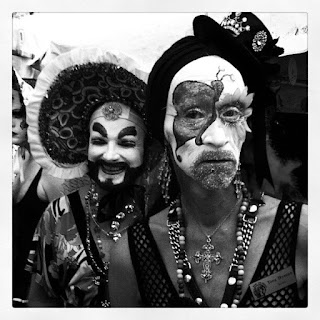Posted
by Desmond Goss, ATLANTA, GA -- Since the beginning of the Industrial
Revolution, urban areas in the United States have conjured an image of refuge
for socio-political groups who find themselves on the fringes of mainstream
culture. It's no surprise, then, that gay men, lesbians, bisexual, and
transgendered individuals (GLBT) have flocked to cities around country, in
search of new opportunities emerging from a relaxation of the discrimination
that may have restricted their life chances in their hometowns – many even
fleeing explicit oppression, hate, and threats of violence. In this regard, the
city can, in some ways, be seen as refuge. Southern cities are especially
interesting for examining this phenomenon, as they tend to be separated by
greater distances than Northern cities. Thus, places like Charlotte, Tampa
-- and particularly Atlanta -- become oases for the GLBT individuals in surrounding rural communities. Atlanta boasts
the highest population percentage of gay, lesbian, and bisexual individuals
(15%) out of all southern cities, only outpaced nationally by San Francisco and
Seattle. Atlanta is also consistently ranked high on magazine and
gay rights agency lists for most gay-friendly places to live in the U.S.
Nowhere
can the community empowerment made possible by urban liberalism be better understood
than GLBT pride festivals. Atlanta Pride Festival, like others in urban areas
around the world, is an annual celebration of groups who transgress traditional
gender and sex norms, and a political statement suggestive, not just of acceptance,
but of pride in one’s sexual identity as well. For one weekend, every year in Atlanta's
Piedmont Park, hundreds of local venders, corporate sponsors, and advocacy
groups set up booths around the lake catering to the thousands of festival
attendees. The weekend culminates in a parade with a march of floats down
Peachtree Street. Regardless of the activities that take place, pride festivals
offer GLBT individuals a chance to recharge their connection to the gay
community, thus reaffirming their sexual identity, and providing reassurance
that cities like Atlanta are indeed safe places for self-exploration and
expression.
Desmond Goss is a Doctoral Student in
Sociology at Georgia State University. He can be contacted at
dgoss5@student.gsu.edu.







No comments:
Post a Comment